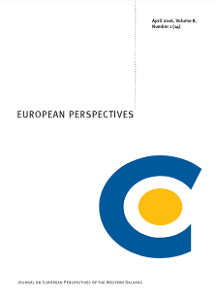Extension of the Diagonal Cumulation of Origin of the Goods for the Western Balkan Countries - Challenges and Opportunities
Extension of the Diagonal Cumulation of Origin of the Goods for the Western Balkan Countries - Challenges and Opportunities
Author(s): Zlatko VeterovskiSubject(s): Politics, Regional Geography, Governance, Economic policy, Government/Political systems, International relations/trade
Published by: Mednarodni inštitut za bližnjevzhodne in balkanske študije IFIMES
Keywords: Origin of Goods; Cumulation; Preferential Trade; Customs;
Summary/Abstract: Origin is the "economic" nationality of the goods in international trade. There are two kinds, non-preferential and preferential rules of origin. Preferential origin of goods confers certain benefits on goods traded between particular countries, namely entry at a reduced or zero rate of duty, which allows better market access and better allocation of resources. The Western Balkan countries (WBCs) need a quick and feasible solution which would enable greater regional trade integration in the Western Balkans and its trade cooperation with other European countries (EU, EFTA, Turkey) in order to stimulate trade growth and economic development of the region. This could be established through full implementation of the diagonal cumulation of origin of goods1 2. When some of the countries are not included in the same system of diagonal cumulation, they can not benefit from the preferential treatment of the products, enabled by the cumulation. This concerns import to and export from these countries, depending on the trading combination. Currently there are two handy, EU-run systems of diagonal cumulation in the area of EU, EFTA, Turkey and SAP countries. The Western Balkan countries cannot fully benefit from diagonal cumulation, because they are not included in the same system as all of their most important trading partners (EU and indirectly EFTA). EU is the most important trade partner of the Western Balkans and since for the EU, Switzerland (EFTA) is second most important market for EU products, EFTA countries are indirectly important trading partner also for the WBCs (because of trading routes and origin). A lot of EU products are partially produced in Western Balkans, but under current system of diagonal cumulation, trading between EFTA and Western Balkans through EU states is not stimulated. Also EU companies are similarly limited in exporting to Western Balkans when manufacturing partly takes place in the EFTA states. Thus, non-inclusion in the same cumulation system means non-favorable conditions for the companies from WBCs as well as for the companies from EU, EFTA and Turkey. Being aware of the limitations, a lot of EU and EFTA companies probably exactly out of these reasons decide for sale and extension of the production only to certain markets, which are part of the same system of diagonal cumulation and not to the Western Balkan market. Introduction of the SAP++ diagonal cumulation with EFTA would prevent further loss of the potential, which the region would have, if the states would be more trade-integrated among themselves and with other partners in Europe. The full implementation of the PEM cumulation of origin shall bring enormous economic benefits for the Western Balkan countries. It shall boost conclusion of the FTA among WB countries and Mediterranean countries, providing increase of trade and benefits for the economy and possibilities to cumulate the origin of the goods and have better market access to EU market. The increased trade between the Republic of Macedonia and Turkey as shown in this article together with these figures suggests that the Western Balkan countries have to be included in the system of Pan-Euro-Mediterranean system of cumulation of origin as soon as possible.
Journal: International scientific journal European Perspectives
- Issue Year: 4/2012
- Issue No: 2 (7)
- Page Range: 73-87
- Page Count: 15
- Language: English

